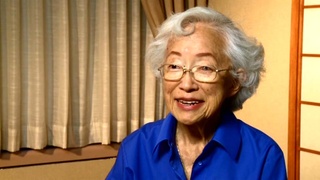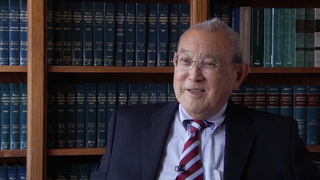Interviews
Trick in developing the film
What they did was they didn’t know anything about the internment experience. I mean they were so ignorant, they wanted Toshiro Mifune in there and so forth. And they said, “Oh well, do those people speak English?” You know, it was that kind of ignorance. And they wanted, of course, a White lead. They wanted Louis Frizel to be the lead and that’s why we had to put Gretchen in there. She was great, but we had to have a White woman in there, so that story was made up, that love story, you know.
Some of the things we had to do in order to get it even past the first round. But what John did is – he’s so smart – he showed them one script and then we worked on another script. And they didn’t know the difference. So we really patted down those other leads.
Date: December 27, 2005
Location: California, US
Interviewer: John Esaki
Contributed by: Watase Media Arts Center, Japanese American National Museum










